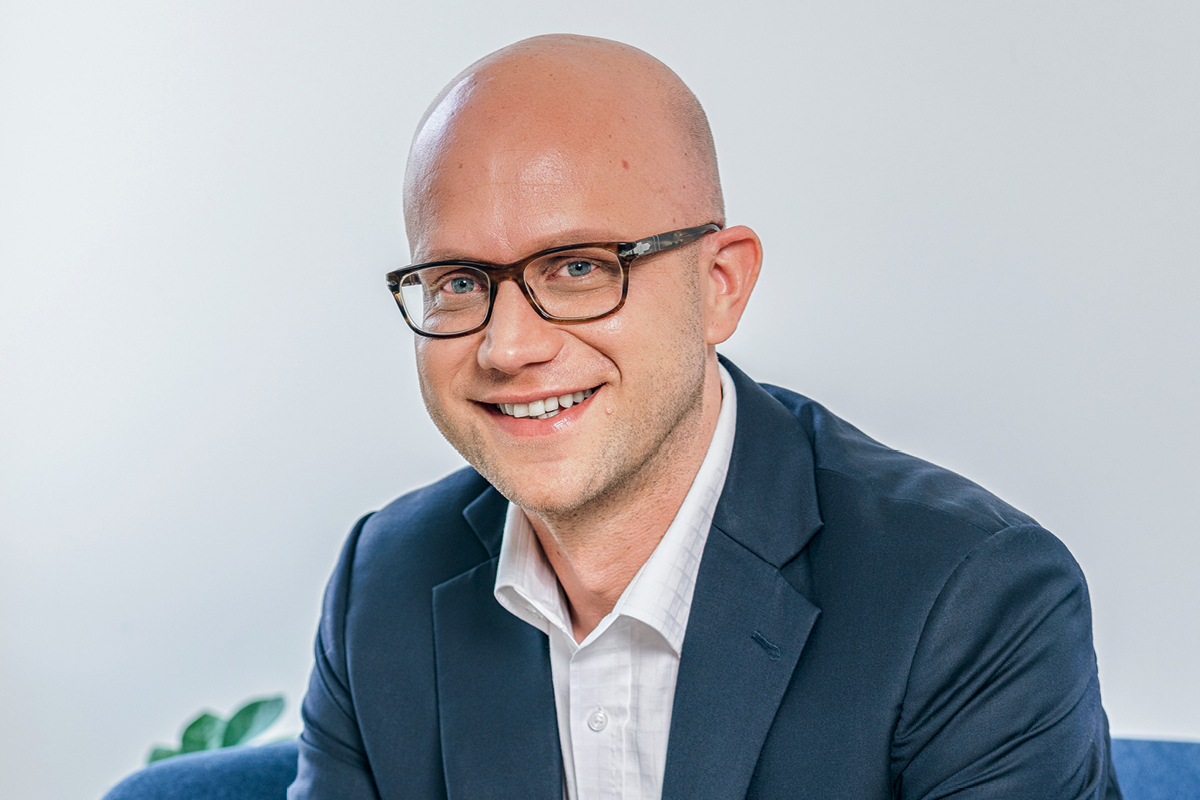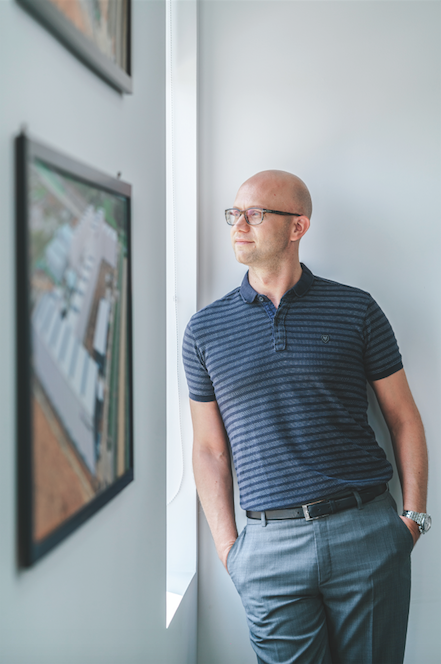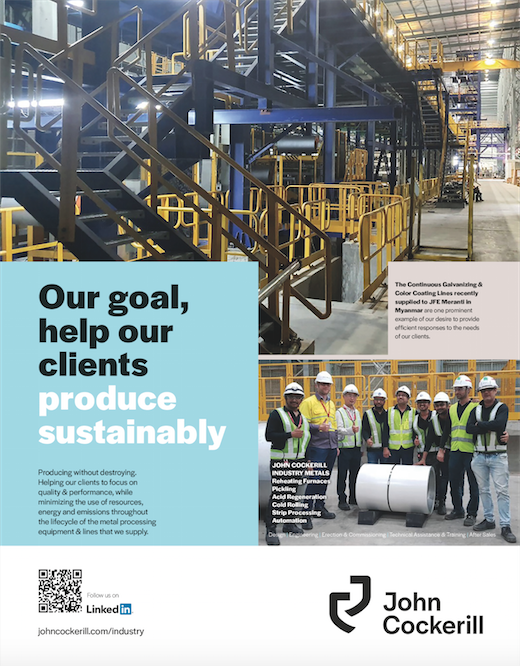For some people, challenging themselves in new environs or circumstances adds a frisson of excitement in tackling the unknown or unexpected. So it is for JFE MERANTI CEO and Managing Director Sebastian Langendorf, who has found a new market and new business possibilities in Myanmar, and acted on his instincts.

“Throughout my career, I have worked in different areas, but I have mostly worked in emerging countries,” Sebastian tells The CEO Magazine. “Emerging countries have a very special vibe. Generally, people tend to look at opportunities more than at risk, and that is very encouraging and energising.”
JFE MERANTI is a manufacturer and supplier of coated steel products used for many purposes, but especially in building and roofing applications. The company has established a facility in the Thilawa Special Economic Zone, a little more than 20 kilometres south-east of Yangon and, in doing so, is changing the lives of the local community.
Sebastian brings legal, management and production experience with him to JFE MERANTI after working as a lawyer in Germany and for the World Bank. He also consulted with Bain & Company, worked in project finance in Africa, and has five years of industrial experience with a steel company.
“I put all these together and added my passion for sustainable buildings, which gave me the picture of starting a coated steel business myself,” he outlines.
“I’m the CEO of this business, but I’m also a Co-Founder and the owner of Meranti Steel. I started with this project at the end of 2015; we formed the partnership with JFE Steel and three Japanese trading houses in 2017, and our venture partners gave me the mandate to lead the joint venture as CEO.”
A trip to Myanmar opened his eyes to the possibilities of doing business there, and it took him little time to put the wheels in motion.
“Myanmar is a country in transition since opening up in 2012, and there’s a large population of about 55 million people. Being between India, China and South-East Asia gives us a very strategic position, with real growth potential,” Sebastian explains.

“We believe that the demand side has a very good long-term outlook, especially in the construction sector. On the supply side, we saw that there is not much local competition, so we’re the first steel coating company in Myanmar with modern production. Of course, we still compete with imports, and that’s often for more pricesensitive segments. But I think our targeting is really to bring our value proposition into the domestic market.”
Establishing the business in Myanmar meant starting from scratch – in production, market development, supply chains and staff. A daunting task, but one Sebastian relished.
“We had to build the whole project – we had to build the plant, develop customer relationships and develop the supply chain. But I think my first focus was actually on building a corporate identity and a set of core values that everybody identified with,” he points out.
Quality coated steel has the advantage of quick installation, solid durability of 25 years, and even longer for a roof. In Myanmar, at least half of all roofs are already built with coated steel, although mostly of lower quality, says Sebastian. There lies JFE MERANTI’s main target market.
“Coated steel is a very practical solution, and not only for Myanmar; we see coated steel as one of the leading building materials in the entire emerging world, especially in warmer and tropical climates. So we try to replace low-quality material with high-quality roofing, and we see Myanmar just as a start,” he says.
“One challenge for us is local infrastructure. Our production requires a significant amount of electricity. We need solid road transport, industrial gas, and we need local support. We are located in a special economic zone, which is an excellent production location, and probably the most modern industrial estate in Myanmar.”
In a world where you can be anything, be truthful. I think it is something that, as leaders, we have to always be aware of.
Even with production now in full swing, JFE MERANTI faces numerous other hurdles. “We still see challenges in the years ahead around stable electricity and local supply chains not being established,” Sebastian explains.
“What we are working towards with local communities and other partners in Thilawa is making sure we have more raw materials on the ground. “One example is localising the supply of nitrogen and hydrogen. Our partner is a company called Yangon Industrial Gas, which is building a small nitrogen and hydrogen production facility right next to our factory.”
Then there is the question of a skilled workforce. JFE MERANTI is tackling this problem head-on. “Our commitment to the country is making sure that we build and scale up the local workforce. We work a lot on training our local team members; more than 85% of our team are local. Scaling up and helping to train local team members is very important,” Sebastian says.
“In other areas, it’s sustainability. Sustainable production is, for us, a way of showing our commitment to the country. We are interested in having industrial production focused on the long-term that respects the environment and community, and I think this helps us a lot in building relationships with the locals.”
That regard for the local community is apparent in Sebastian’s appreciation of leadership skills, which he condenses into truthfulness. “It’s a quote I read that I have been trying to practise during my career: ‘In a world where you can be anything, be truthful,’” he says.
“I think it is something that, as leaders, we have to always be aware of. It needs to be taken into consideration in all sorts of relationships – with customers, and with business partners, suppliers, shareholder partners and with team members. I think it’s often when we as humans show empathy and integrity that we really make progress, and then we also grow personally.”
Proudly supported by:



